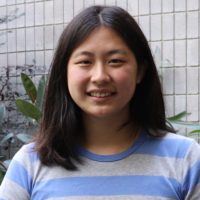
“Construction of a graph-based watermelon pan-genome and investigation of genetic variation in cultivated watermelon and its wild relatives”
Project Summary:
Watermelon is one of the most popular and economically important fruit crops worldwide. The cultivated watermelon, Citrullus lanatus subsp. vulgaris, was created from over 4000 years of domestication. However, the cultivated watermelon is vulnerable to various diseases, while wild watermelons display resistance to many of these diseases. Wild watermelons have been widely used in modern breeding to introduce disease resistance. However, this process is slow, as it is unclear which specific genes and variants are giving disease resistance in wild watermelons. The goal of the project was to identify potentially beneficial genes, including resistance genes, to be introduced into breeding. First, nine genome assemblies from the cultivated watermelon and its direct wild progenitor (C. lanatus subsp. cordophanus) and close wild relative (C. mucosospermus) were aligned to the reference genome ‘97103’ to identify SVs, which were used to construct a graph-based pan-genome. Seventy-five representative accessions were genotyped for the SVs through mapping Illumina short reads to the constructed pan-genome. SVs with significantly higher frequencies in the two wild populations compared to the cultivated population were identified. Affected genes by these SVs with the disease resistance related functions were further identified, including those encoding NBS-LRR resistance proteins. Selective sweep analysis was also performed to detect genes related to fruit quality that are under selection during domestication. One of the genes identified encoded a RING-type E3 ubiquitin transferase, and this gene is located in a sugar content QTL, QBRX2-1, suggesting its potential role in fruit flesh sugar accumulation during watermelon domestication. The genes and variants discovered here could be candidates for further functional characterization and for watermelon breeding.
My Experience:
My time in the Fei lab was very insightful in many aspects and gave me my first immersive research experience in a field that I am interested in. Throughout my project, I was exposed to different programs and coding languages commonly used in bioinformatics, including many of which I was previously unfamiliar with. I also have a better understanding of what it means to continue down a career path in this field. On top of all of this, working with highly experienced professors, graduate students, and postdocs in this field was a very eye-opening experience. I also loved meeting other interns with similar interests and career passions as I do. Overall, I had a great time here. This summer at BTI has taught me a lot and gave me a better sense of direction for my post-undergraduate years.
